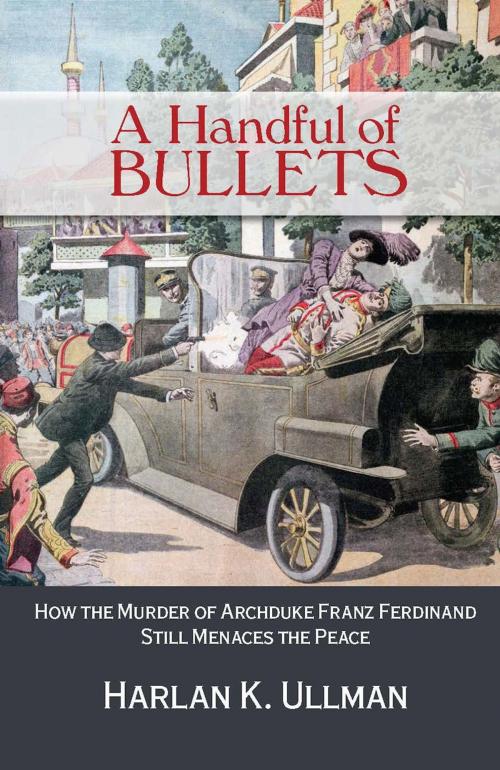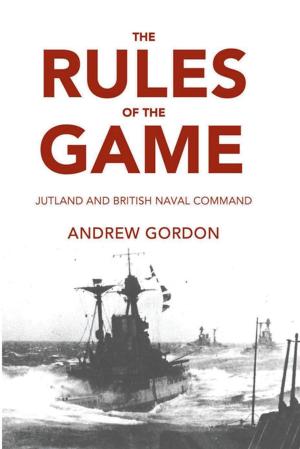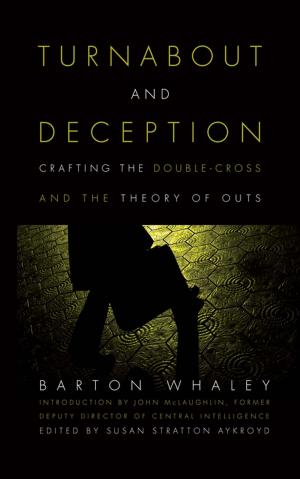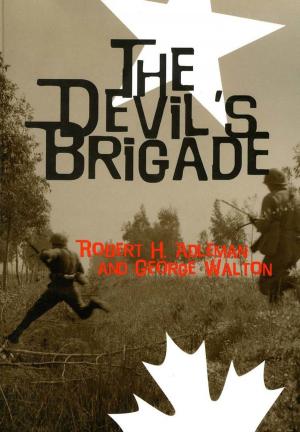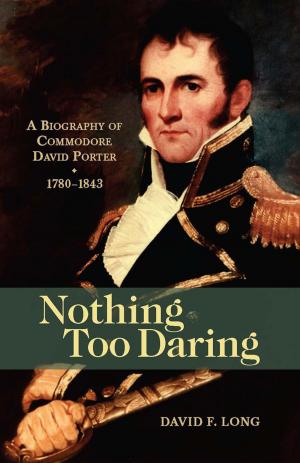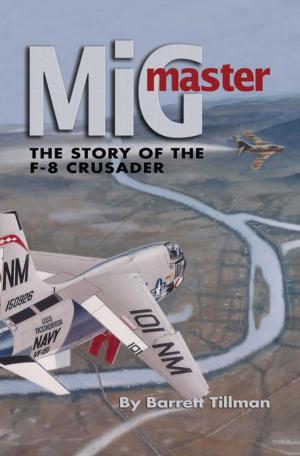A Handful of Bullets
How the Murder of Archduke Franz Ferdinand Still Menaces the Peace
Nonfiction, Social & Cultural Studies, Political Science, International, International Relations| Author: | Harlan K. Ullman | ISBN: | 9781612517926 |
| Publisher: | Naval Institute Press | Publication: | December 15, 2014 |
| Imprint: | Naval Institute Press | Language: | English |
| Author: | Harlan K. Ullman |
| ISBN: | 9781612517926 |
| Publisher: | Naval Institute Press |
| Publication: | December 15, 2014 |
| Imprint: | Naval Institute Press |
| Language: | English |
The Great War or the War to end all Wars” as promised by President Woodrow Wilson was neither great nor ultimately conclusive. Precipitated by the assassination of the Austro-Hungarian Archduke Franz Ferdinand and his wife in the streets of Sarajevo on June 28th, 1914, World War I demolished the order established by the Concert of Vienna, an order that had maintained the peace in Europe for almost a century. The ensuing carnage laid the foundations for a second world war and the cold war that followed.
World War I also left in its catastrophic wake three transformational legacies that remain largely unnoticed today. These legacies have provoked and will provoke massive and even tectonic change to the international order. But containing, mitigating, and preventing these disruptions from exploding into major crises will prove no less difficult a challenge than did restraining the forces that ignited the chaos and violence of the last century.
The first legacy would create an excess of potential archdukes and an abundance of bullets any combination of which could detonate a regional or global crisis. The second began the unraveling of the Westphalian system of state-centric politics in place since 1648. And the third was to seat Four New Horsemen of the Apocalypse as the major threats and challenges to global peace and prosperity.
In a sentence, these legacies would make Osama bin Laden into a modern day version of Gavrilo Princip, the Archduke’s assassin. They threaten to turn September 11th 2001 into a June 28th 1914 like event, but in many different and frightening ways. Instead of using a Beretta 9-mm pistol, bin Laden crashed three airliners into New York’s Twin Towers and the Pentagon in Washington, D.C., starting a global war on terror.
This book tells this story.
Unfortunately, our current strategic mindset to deal with the twenty-first century threats remains firmly anchored in the past. That mindset must change if aspirations for peace and prosperity are to be met with decisive and effective actions.
World War I also left in its catastrophic wake three transformational legacies that remain largely unnoticed today. These legacies have provoked and will provoke massive and even tectonic change to the international order. But containing, mitigating, and preventing these disruptions from exploding into major crises will prove no less difficult a challenge than did restraining the forces that ignited the chaos and violence of the last century.
The first legacy would create an excess of potential archdukes and an abundance of bullets any combination of which could detonate a regional or global crisis. The second began the unraveling of the Westphalian system of state-centric politics in place since 1648. And the third was to seat Four New Horsemen of the Apocalypse as the major threats and challenges to global peace and prosperity.
In a sentence, these legacies would make Osama bin Laden into a modern day version of Gavrilo Princip, the Archduke’s assassin. They threaten to turn September 11th 2001 into a June 28th 1914 like event, but in many different and frightening ways. Instead of using a Beretta 9-mm pistol, bin Laden crashed three airliners into New York’s Twin Towers and the Pentagon in Washington, D.C., starting a global war on terror.
This book tells this story.
Unfortunately, our current strategic mindset to deal with the twenty-first century threats remains firmly anchored in the past. That mindset must change if aspirations for peace and prosperity are to be met with decisive and effective actions.
The Great War or the War to end all Wars” as promised by President Woodrow Wilson was neither great nor ultimately conclusive. Precipitated by the assassination of the Austro-Hungarian Archduke Franz Ferdinand and his wife in the streets of Sarajevo on June 28th, 1914, World War I demolished the order established by the Concert of Vienna, an order that had maintained the peace in Europe for almost a century. The ensuing carnage laid the foundations for a second world war and the cold war that followed.
World War I also left in its catastrophic wake three transformational legacies that remain largely unnoticed today. These legacies have provoked and will provoke massive and even tectonic change to the international order. But containing, mitigating, and preventing these disruptions from exploding into major crises will prove no less difficult a challenge than did restraining the forces that ignited the chaos and violence of the last century.
The first legacy would create an excess of potential archdukes and an abundance of bullets any combination of which could detonate a regional or global crisis. The second began the unraveling of the Westphalian system of state-centric politics in place since 1648. And the third was to seat Four New Horsemen of the Apocalypse as the major threats and challenges to global peace and prosperity.
In a sentence, these legacies would make Osama bin Laden into a modern day version of Gavrilo Princip, the Archduke’s assassin. They threaten to turn September 11th 2001 into a June 28th 1914 like event, but in many different and frightening ways. Instead of using a Beretta 9-mm pistol, bin Laden crashed three airliners into New York’s Twin Towers and the Pentagon in Washington, D.C., starting a global war on terror.
This book tells this story.
Unfortunately, our current strategic mindset to deal with the twenty-first century threats remains firmly anchored in the past. That mindset must change if aspirations for peace and prosperity are to be met with decisive and effective actions.
World War I also left in its catastrophic wake three transformational legacies that remain largely unnoticed today. These legacies have provoked and will provoke massive and even tectonic change to the international order. But containing, mitigating, and preventing these disruptions from exploding into major crises will prove no less difficult a challenge than did restraining the forces that ignited the chaos and violence of the last century.
The first legacy would create an excess of potential archdukes and an abundance of bullets any combination of which could detonate a regional or global crisis. The second began the unraveling of the Westphalian system of state-centric politics in place since 1648. And the third was to seat Four New Horsemen of the Apocalypse as the major threats and challenges to global peace and prosperity.
In a sentence, these legacies would make Osama bin Laden into a modern day version of Gavrilo Princip, the Archduke’s assassin. They threaten to turn September 11th 2001 into a June 28th 1914 like event, but in many different and frightening ways. Instead of using a Beretta 9-mm pistol, bin Laden crashed three airliners into New York’s Twin Towers and the Pentagon in Washington, D.C., starting a global war on terror.
This book tells this story.
Unfortunately, our current strategic mindset to deal with the twenty-first century threats remains firmly anchored in the past. That mindset must change if aspirations for peace and prosperity are to be met with decisive and effective actions.
